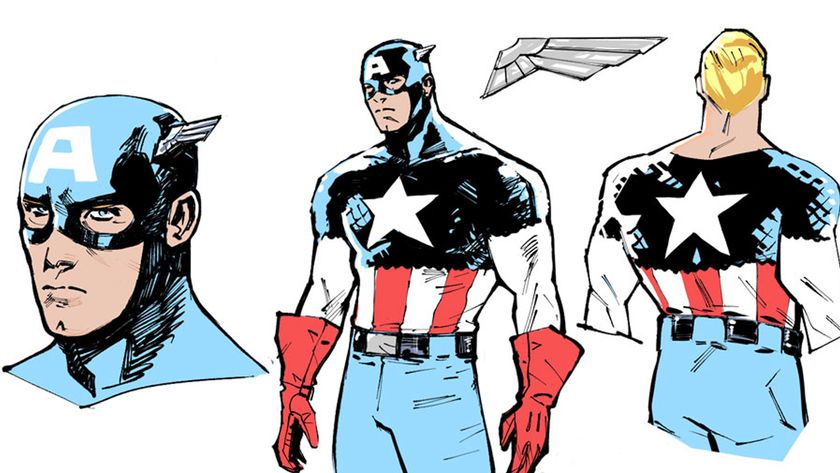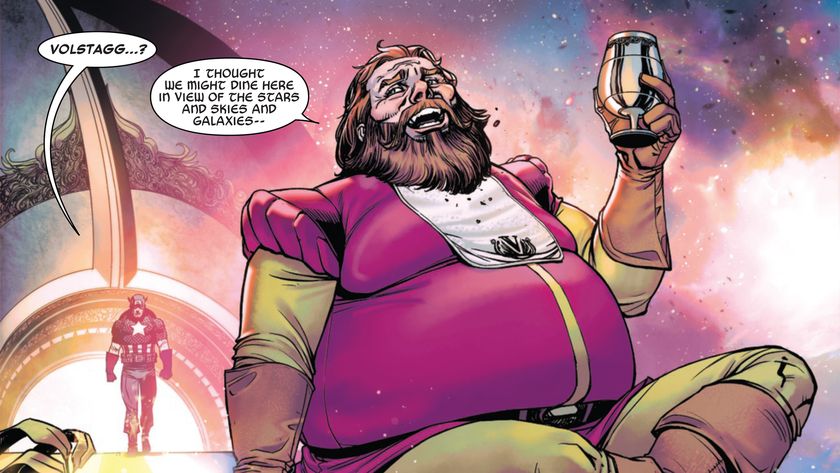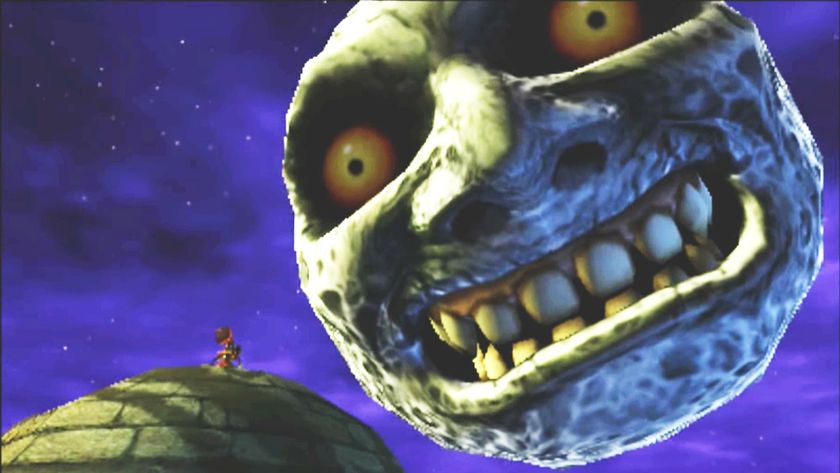How Peter Parker's many father figures shaped him into Spider-Man
Peter Parker learned to be a hero with the help of a whole host of Spider-Mentors
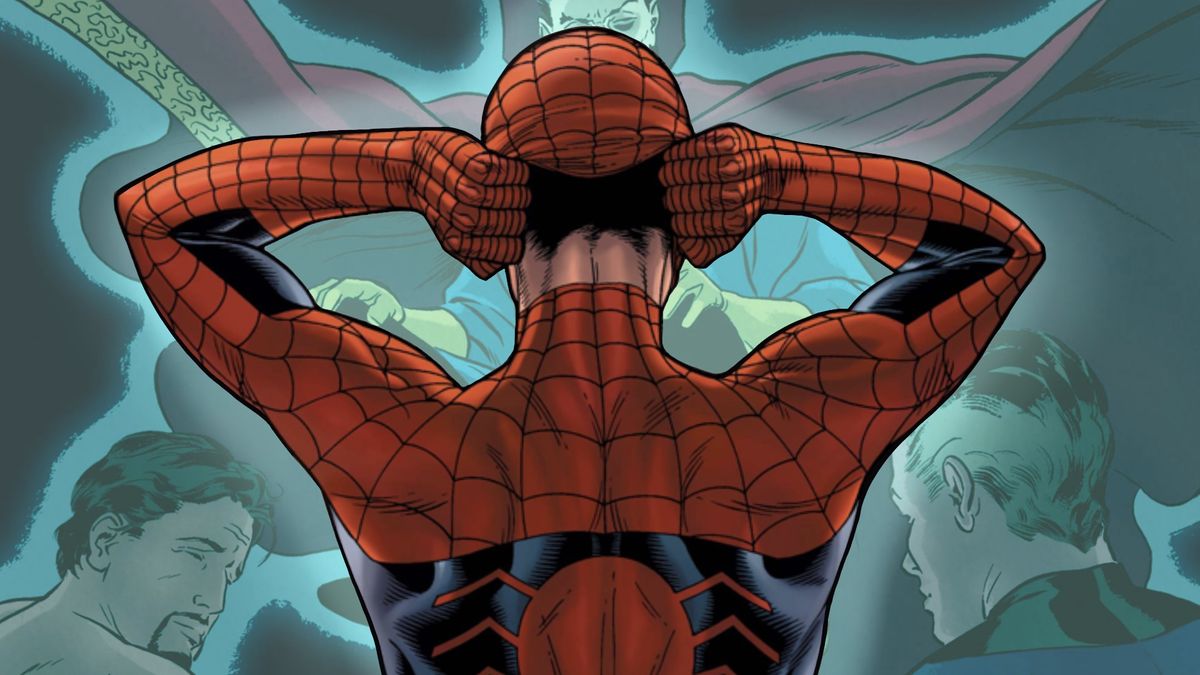
Peter Parker, the original Spider-Man, was raised by his uncle Ben Parker and aunt May Parker following the deaths of his parents, Richard and Mary Parker, leaving Richard's brother Ben as Peter's strongest masculine influence and his ersatz father figure.
But if Uncle Ben taught Peter Parker how to be a man, who taught him how to be a Spider-Man - a hero living up to his utmost potential as a defender of the weakest among us?
Almost since the very moment he became Spider-Man, Peter Parker's life has been guided and defined by the older father figures in his life - both for better and for worse.
Starting with his first appearance in 1962's Amazing Fantasy #15, in which Peter's selfishness in refusing to stop a burglar who is robbing an unscrupulous wrestling promoter who cheated Peter out of money results in the same burglar later murdering his Uncle Ben, Peter's morality and philosophy have been codified around a series of lessons all growing out of his Uncle Ben's adage, "With great power must also come great responsibility."
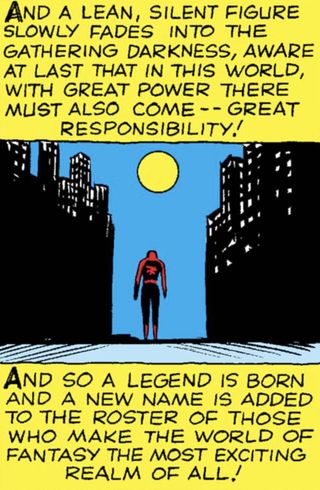
Both in his relationships with his older heroic peers and his rivalries with older villains and antagonists who reflect what happens when great power is used irresponsibly, Peter's career as Spider-Man has been built around the influence of the men who showed him what the balance of great power and great responsibility truly means.
This dynamic has been reflected in the MCU, where Peter was first mentored by Tony Stark in Captain America: Civil War and Spider-Man: Homecoming. Then, Tony's death left a vacuum that was filled by the duplicitous and dastardly Mysterio in Spider-Man: Far From Home, who exploits Peter for his own ends while Tony's best friend Happy Hogan does his best to step in as a positive influence in Peter's life.
And now, in Spider-Man: No Way Home, Peter will come under the wing of Doctor Strange, who will help Peter deal with seemingly insurmountable existential threats, as in comic books.
Comic deals, prizes and latest news
Get the best comic news, insights, opinions, analysis and more!
But Peter's comic book lessons go even deeper than that, and the men who gave him his most important moral education, both in terms of how to be a great hero and how to fall into the traps of ego and greed, represent the core relationships of Peter Parker's life as Spider-Man.
Who are these men? Let's meet them right now.
(By the way, we're not planning to ignore the formative women in Peter's life, from Aunt May, to MJ, to Madame Web, and more - and we'll tell their stories soon too).
J. Jonah Jameson
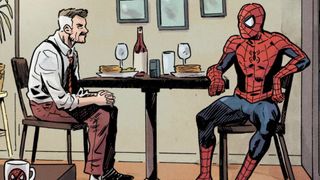
When Peter Parker's Uncle Ben died, he quickly found himself with a host of new responsibilities even beyond his newfound power as Spider-Man, including having to contribute financially to keep himself and his Aunt May in their home.
To wit, Peter sought a job as a photographer at the Daily Bugle, kickstarting his relationship with J. Jonah Jameson - one of Peter's oldest father figures, who taught him the complex lesson that truth and perception are powerful tools for both good and evil.
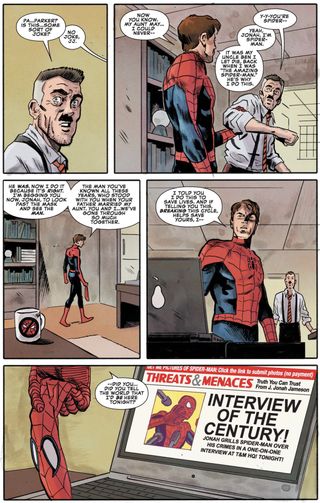
Though Jameson essentially mentors Peter Parker as a news photographer, nurturing his skill for photographing Spider-Man in his own curmudgeonly way, he also exposes Peter to the idea that ambition can corrupt even the best intentions.
Jameson values his identity as a newspaperman, a journalist exposing and speaking truth to power. Yet at the same time, Jameson wields his newspaper as a weapon against Spider-Man for his own political ends, even using the Daily Bugle's money to finance villains like the Scorpion and the Spider-Slayers.
All of this adds up to Peter learning a very specific lesson about the power of hiding his identity, and the fact that altruism is a rare and precious commodity, even among those who consider themselves bastions of truth and wisdom.
Reed Richards
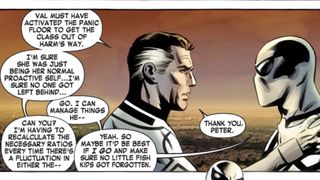
The first superheroes Spider-Man developed a relationship with were the Fantastic Four. They crossed paths right in 1963's Amazing Spider-Man #1, teaming up against Spidey's first supervillain, the Chameleon.
Peter's friendship with Johnny Storm is well-known, but it's his relationship with Reed Richards that has informed Peter's path as a hero, and as a scientist.
Along with mentoring Peter as a hero in his early days, Reed was one of the earliest driving forces in teaching Peter to use his scientific prowess as part of his hero career, for the good of all people.
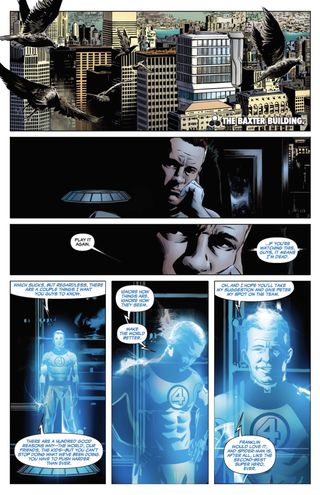
In Reed's case, the lesson he imparts to Peter echoes the dichotomy of power and responsibility taught by his Uncle Ben - that knowledge is power, and those who possess great knowledge must use it to advance and protect mankind.
And of course, Reed is probably the only real family man in Peter's life - an influence that rubbed off on him when Reed tapped Peter to replace Johnny Storm as the fourth member of the Fantastic Four while Johnny was trapped in the Negative Zone and presumed dead.
Norman Osborn
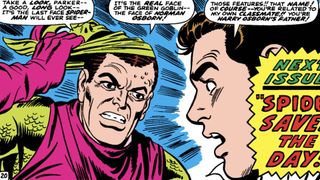
On the flipside of Reed Richards, a man of science who values his family as much as his experiments, is Norman Osborn - Peter's long-time arch-enemy and the father of his best friend Harry Osborn.
There's an almost direct parallel between Reed Richards and Norman Osborn in Peter's life, where both men take Peter under their wing as he develops a friendship with a young man in their care (Johnny, Reed's nephew, and Harry, Norman's son, respectively).
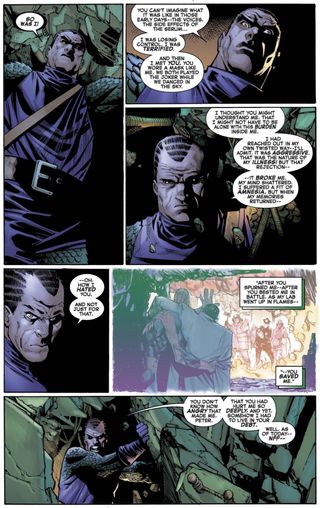
But in Norman's case, Peter saw the worst of what can happen when power and knowledge come with greed and hubris instead of personal responsibility.
Driven by a hunger for wealth, Norman abuses and abandons his son Harry while simultaneously becoming the villainous Green Goblin, one of Peter's deadliest foes with absolutely no morals or compunction about how he abuses the strength granted by his transformation into the Goblin.
And perhaps even worse, Peter sees what can happen when someone with incredible power has no regard for human life thanks to Norman's murder of Peter's girlfriend Gwen Stacy, one of the most formative events in Peter's life.
Tony Stark
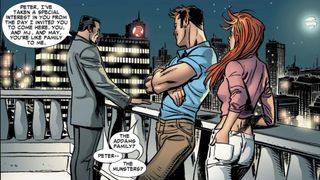
One of Peter Parker's most formative relationships in the MCU is his mentor-mentee partnership with Tony Stark, who is essentially the polar opposite of Norman Osborn: an industrialist who moved away from making weapons of war, while still struggling with his own arrogance.
Tony and Peter's relationship is echoed in comic books, though their association didn't begin until Peter was an adult, with Tony offering Peter a job at Stark Industries, effectively ending his financial struggles and giving him a more solid footing in the world.
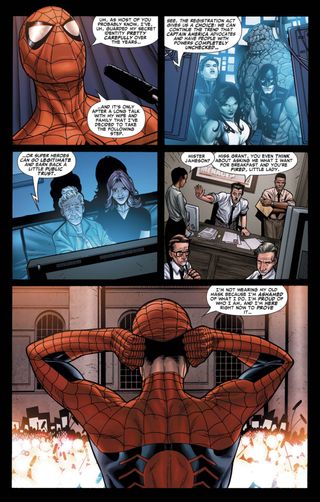
While upgrading and enhancing Spider-Man's crime-fighting capability with new technological advancements, Tony simultaneously teaches Peter Parker that no matter how many powers, weapons, or skills he may have, what's most important is the person under the mask and the quality of their character.
But at the same time, Tony inadvertently teaches Peter a much more serious lesson about his own secret identity - something he's struggled with since the start of his time as Spider-Man.
Encouraging Peter to unmask as part of the Superhuman Registration Act in Civil War, the revelation of Peter's identity leads to the attempted murder of Aunt May, teaching Peter that he must trust himself and his own instincts first and foremost to protect himself and those around him.
Doctor Octopus
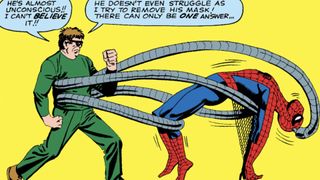
Spider-Man's first arch-enemy was Doctor Octopus, who just about everyone knows thanks to his portrayal on film by Alfred Molina in Spider-Man 2 (which, interestingly enough, adds a strong focus on the idea of Doctor Octopus as a mentor to Peter Parker, something that may play into the villain's upcoming return in Spider-Man: No Way Home), and who was one of the first villains to attempt to publicly unmask Peter.
Unlike Peter Parker, a naturally gifted scientist whose Uncle Ben and Aunt May raise him to be kind and nurture his intelligence, Otto Octavius was born to an abusive mother who was insistent that Otto be a brilliant, successful scientist.
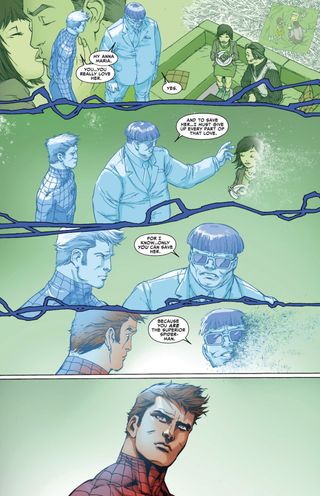
And it's that parallel that seems to be the driving force of Peter and Doctor Octopus's rivalry - with Ock believing at every turn that he is 'superior,' and deserving of more glory and wealth - personality traits which are only exacerbated by the accident that fuses the villain's mechanical tentacles to his body, driving him to a life of crime.
In Peter's first fight with Doctor Octopus, he actually loses, almost quitting being Spider-Man as a result. But Peter realizes that he's the only one with the strength and skill to defeat Doc Ock.
Oddly enough, it was actually Doctor Octopus that learned a deeper lesson from Peter Parker (though it hasn't exactly seemed to stick) when he took over Peter's body to become the Superior Spider-Man, eventually seeing the error of his brutal methods as a hero and giving Peter's body back to him.
Doctor Strange
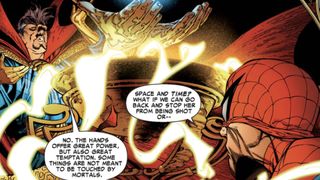
The concept that Peter Parker must hide his superhero identity to protect his loved ones is at the heart of Spidey's current place in the MCU, and it also ties strongly into his relationship with Doctor Strange, Peter's most recent MCU mentor and one of his oldest comic book allies.
Though Strange and Spidey have been teaming up almost since their earliest adventures, it's their more recent association that has driven some of the most dire moments of Peter's life.
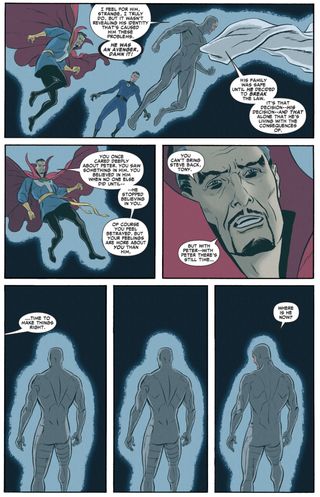
Following Peter outing himself as Spider-Man, Spidey and his wife Mary Jane Watson made a deal with the demon Mephisto to hide Peter's identity again - at the cost of his marriage with MJ.
The result was a massive retcon to Spider-Man's history, culminating in a story where Strange helps Peter put his secret identity back in the bag - though the ritual is complicated when Peter interferes by bringing Mary Jane Watson in to preserve her memory of his secret (much like in No Way Home).
This begins a years-long rivalry between Strange and Mephisto over the fate of Peter's soul, all behind the scenes, while also teaching Peter Parker that relying on existential forces rather than his own power, intelligence, and determination can come with terrible costs - in other words, such incredible power must be used with the utmost responsibility.
Peter Parker, mentor
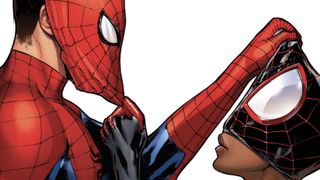
In recent years, Peter has passed these lessons down to other heroes as well, bringing his own upbringing as Spider-Man full circle.
In mentoring the young Miles Morales, Peter's successor with whom he shares the identity of Spider-Man, he's done his best to help Miles learn the hardest lessons a hero can receive without the same heartache Peter suffered to learn them.
And in the current 'Spider-Man Beyond' era, Peter is out of commission as Spider-Man, with his clone Ben Reilly taking up the mantle - and learning nearly every moment exactly how hard it is to live up to the legacy of Spider-Man without hewing close to the same strength of character Peter Parker tries to embody at every moment.
Stay caught up with all the Wall-Crawler's upcoming adventures with our listing of all the new Spider-Man comics planned for release in 2021 and beyond.
I've been Newsarama's resident Marvel Comics expert and general comic book historian since 2011. I've also been the on-site reporter at most major comic conventions such as Comic-Con International: San Diego, New York Comic Con, and C2E2. Outside of comic journalism, I am the artist of many weird pictures, and the guitarist of many heavy riffs. (They/Them)
Most Popular





